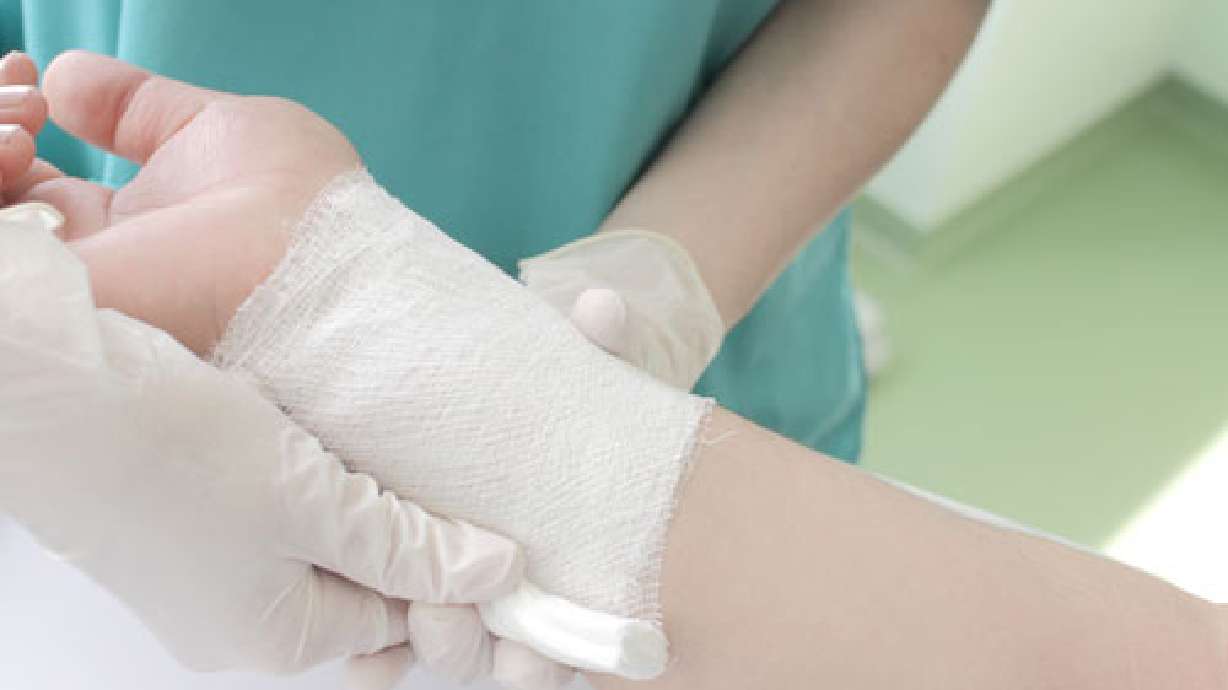Estimated read time: 3-4 minutes
This archived news story is available only for your personal, non-commercial use. Information in the story may be outdated or superseded by additional information. Reading or replaying the story in its archived form does not constitute a republication of the story.
SALT LAKE CITY — In most cases, animal bites are more scary and upsetting than they are dangerous. But there are cases where you should see a doctor immediately.
When we talk about animal bites, we need to make sure we understand human bites are animal bites, and several factors need to be considered when evaluating a bite.
The most commonly reported bites are from dogs. Dog bites, however, are considered very clean bites because of the bacteria the animals carry in their mouths.
Human bites, followed closely by cat scratches and bites, are considered the dirtiest of animal bites.
Ask Nurse Suzy
"Even with what appears to be a minor (human) bite, contact a doctor to be sure a tetanus shot is not needed," Dr. Jerry R. Balentine wrote in an article for emedicinehealth.com. "Once the skin is broken, a doctor should be consulted because the risk of infection is higher."
Other animal bites that emergency rooms often see are bat bites, snake bites, reptile bites and horse bites. But these types of bites are pretty uncommon among the general population.
When treating any kind of animal bite, hospital staff will consider the type of animal involved, specific nature of the wound, circumstances of the bite, current treatment and location of the bite.
As the Mayo Clinic explains on its website, treatment should take place in four ways:
- For minor wounds — If the bite barely breaks the skin and there's no danger of rabies, treat it as a minor wound. Wash the wound thoroughly with soap and water. Apply an antibiotic cream to prevent infection and cover the bite with a clean bandage.
- For deep wounds — If the animal bite creates a deep puncture of the skin or the skin is badly torn and bleeding, apply pressure with a clean, dry cloth to stop the bleeding and see your doctor.
- For infection — If you notice signs of infection — such as swelling, redness, increased pain or oozing — see your doctor immediately.
- For suspected rabies — If you suspect the bite was caused by an animal that might carry rabies — including any wild or domestic animal of unknown immunization status, particularly bats — see your doctor immediately.
It's important to remember that animals have a better sense of fear than humans, so if the animal can sense your fear, you are an easier target for them to take advantage of or attack. Cats usually bite if you are irritating them or limiting their movement; dogs typically attack to protect their home and family.
Doctors will prescribe antibiotic treatment for most bites simply because of the bacteria within a bite. Soap and water is your best first action for any bite.
Suzanne Carlile, "Nurse Suzy," has been a nurse since 1982. Her main focus is critical care and nursing education. She holds a master's degree in nursing, is a Certified Emergency Nurse, and a member of NNSDO Intermountain West Chapter.










